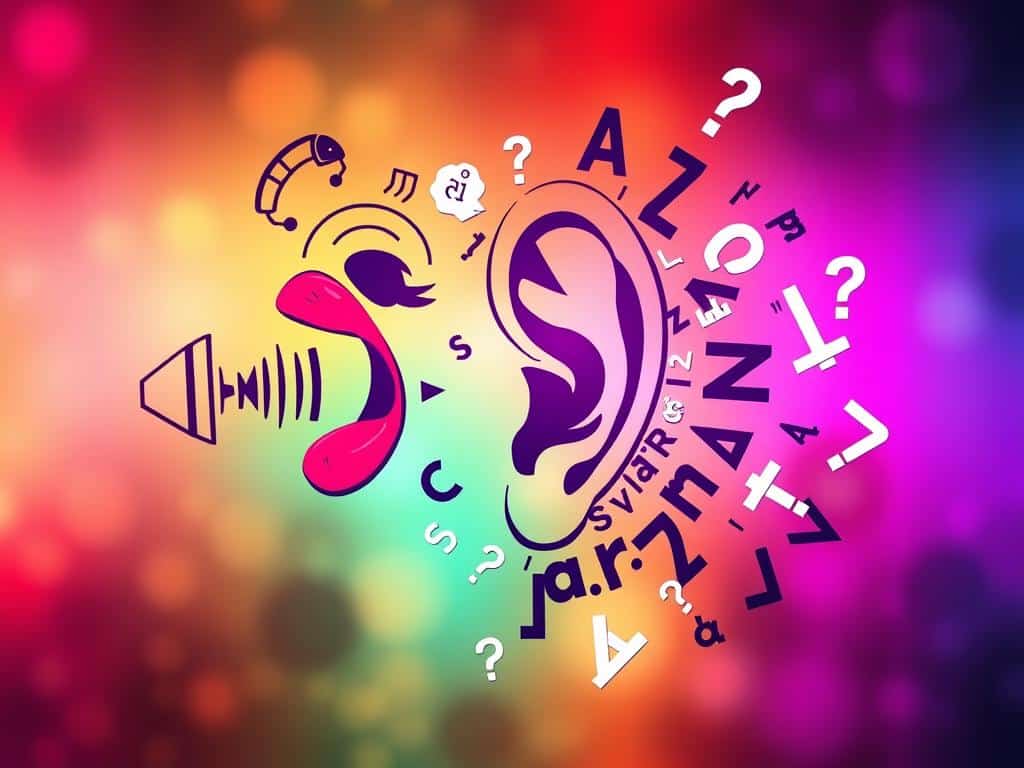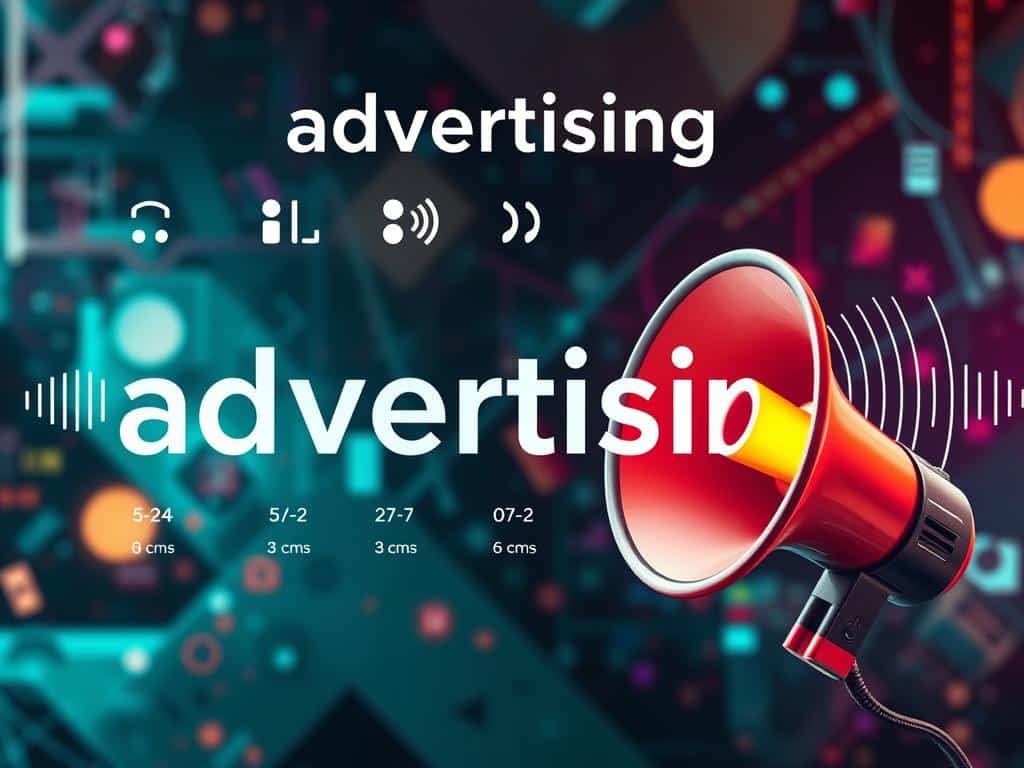The term ‘advertising’ plays a pivotal role in marketing terminology. Mastering its pronunciation can significantly enhance your professionalism. This pronunciation guide aims to help you articulate ‘advertising’ correctly in American English, minimizing misunderstandings in professional settings. Understanding proper pronunciation is essential not only for clear communication but also for demonstrating your command of marketing jargon.
Understanding the Phonetic Spelling of ‘Advertising’
Mastering the phonetic spelling of ‘advertising’ is critical for clear and accurate sound pronunciation. By dissecting the individual sounds, you’ll be able to grasp the nuances in both American and British English. Let’s delve into the phonetic alphabet to understand each component of this word thoroughly.
Breaking Down the Sounds
When examining the word ‘advertising,’ it is essential to break it down into its constituent sounds. Phonetic spelling aids in this process by providing a visual representation of each sound:
Advertise:
- /ˈæd.vərˌtaɪz/ in American English
- /ˈæd.vəˌtaɪz/ in British English
Here’s the phonetic breakdown:
- /æ/: as in “cat”
- /d/: as in “dog”
- /vər/: as in “ver” (rhyming with “fur”)
- /taɪz/: as in “ties”
By practicing each phonetic section separately, you will be able to achieve precise sound pronunciation.
IPA Transcription
The International Phonetic Alphabet (IPA) offers a standardized way to document sounds, which is invaluable for mastering pronunciation.
| Dialect | IPA Transcription | Example Words |
|---|---|---|
| American English | /ˈæd.vərˌtaɪz/ | “advert” (ad) |
| British English | /ˈæd.vəˌtaɪz/ | “advert” (ad) |
With this IPA transcription at your disposal, you can consistently practice and master the correct form of phonetic spelling for ‘advertising.’ To further aid your learning, you can utilize online resources like YouTube pronunciation videos and phonetic alphabet guides. This comprehensive method ensures that your sound pronunciation is sharp and reliable.
Common Mistakes in Pronouncing ‘Advertising’
Pronouncing ‘advertising’ correctly can be challenging due to various factors like pronunciation errors, regional accents, and language variations. Understanding the common pitfalls can help you achieve clarity and precision in your speech.
Avoiding Phonetic Errors
One of the most frequent pronunciation errors occurs in the stress placement of the word ‘advertising’. The traditional IPA transcription for ‘advertising’ is ˈædvətaɪzɪŋ, emphasizing the first syllable. In American English, the word uses the modern IPA transcription, ádvətɑjzɪŋ. Misplacing the stress or misarticulating the vowels and consonants leads to common pronunciation errors that can make communication less effective.

A variety of exercises are available to reinforce the correct pronunciation of advertising-related vocabulary. These exercises include recordings to guide you through accurate vowel and consonant sounds, as well as stress patterns. Words like “eye-catching,” “subtle,” and “glossy” are included to help expand your advertising vocabulary while practicing proper pronunciation.
Regional Variations and Their Impact
Regional accents significantly influence how ‘advertising’ is pronounced. In British English, ‘advertising’ may be seen as “advert-ising,” while in American English, it follows a different stress pattern. The British pronunciation of “advertisement” breaks it into four syllables: /ədˈvɜː.tɪs.mənt/, with stress on the second syllable. On the other hand, the American pronunciation is /ˈæd.vɚˌtaɪz.mənt/, with the primary stress on the first syllable and a secondary stress on the third.
These language variations also extend to informal usage. In the UK, “advert” is the common informal term, while in the USA, “ad” is more prevalent. Understanding these differences is crucial for clarity in both spoken and written communication, especially in international contexts.
| Pronunciation Aspect | British English | American English |
|---|---|---|
| Formal Term | Advertisement | Advertisement |
| Informal Term | Advert | Ad |
| Primary Stress | Second syllable | First syllable |
| Vowel Sounds | /ədˈvɜː.tɪs.mənt/ | /ˈæd.vɚˌtaɪz.mənt/ |
| Syllables | /əd-ˈvɜː-tɪs-ment/ | /ˈæd-vɚ-ˌtaɪz-mənt/ |
By familiarizing yourself with these language variations and regional accents, you can avoid pronunciation errors and enhance your spoken communication about advertising. Whether you’re discussing a commercial, a pop-up, or a cold call, practicing correct pronunciation will make your speech more impactful and professional.
How To Pronounce Advertising Correctly
Mastering the correct pronunciation techniques for the word “advertising” can significantly enhance your English language learning journey. Proper articulation involves both stress and intonation, which are crucial elements that can impact the overall comprehension of your spoken words.
In standard American English, “advertising” is pronounced as /ˌæd.vɚˈtaɪz.mənt/. This differs from the British English pronunciation, /ədˈvɜː.tɪs.mənt/. Understanding these differences can help you avoid confusion when communicating with native speakers from different regions. To break it down further:

- /d/
- /v/
- /ɜː/ (British)
- /ɚ/ (American)
- /t/
- /aɪ/
- /z/
- /m/
- /ə/
- /n/
It’s evident that regional accents and variations play a significant role in how words like “advertising” are pronounced. According to a survey on the Mumsnet Community, 52% of voters believe the correct pronunciation is “AdVERTissment,” while 48% think otherwise. These variations may include “ad-VERT-izment,” “AdverTIZEment,” and “ad vurt iss munt.” Regional accents such as the Southern English accent and the West Country accent further contribute to these differences.
The influence of American television also impacts pronunciation variations. For those looking to perfect their articulation, pronunciation guides available on platforms like YouTube provide valuable resources. Pronouncing “advertising” correctly according to standard American English not only aids in clearer communication but also in better understanding, especially in professional settings. For further assistance, you can find detailed guidance on this topic by visiting this resource.
| Pronunciation Version | Percentage |
|---|---|
| AdVERTissment | 52% |
| Other variations | 48% |
Adhering to correct pronunciation techniques is crucial for accurate and effective communication. When engaging in English language learning, paying attention to nuances such as these can make a significant difference in your fluency and comprehension.
Practice Tips for Perfect Pronunciation
Mastering the pronunciation of ‘advertising’ can be a bit tricky, but with the right pronunciation practice, you can achieve clarity and confidence. Here are some effective methods to aid your journey:
Recording and Playback Methods
Recording and listening to your own speech is a powerful tool in pronunciation practice. Speaking slowly helps improve pronunciation as it provides time to think and breathe properly. Fast speaking can reinforce bad habits and make you sound nervous. Use the following techniques:
- Self-Recording: Record yourself saying ‘advertising’ and play it back. Identify any discrepancies and work on those specific areas.
- Visual Methods: Visualize the position of the mouth and face before making a sound. Practicing in front of a mirror can help you observe your tongue, lips, and mouth shape.
- Imitation: Imitate native speakers by listening to English radio programs and watching English TV shows and movies.
Useful Pronunciation Resources
Numerous language learning resources are available to help with pronunciation practice. Here is a curated list of valuable resources:
| Resource | Description | URL |
|---|---|---|
| Forvo | A vast pronunciation guide with users uploading audio versions of words from different languages. | www.forvo.com |
| Emma Saying YouTube Channel | Provides detailed videos on the correct pronunciation of various English words. | Emma Saying |
| Pronunciation Coach App | An application that offers interactive pronunciation exercises for English learners. | www.proncoach.com |
Using these pronunciation practice tools can significantly enhance your ability to pronounce ‘advertising’ correctly. By focusing on consistent practice, utilizing language learning resources, and recording yourself, you are well on your way to mastering the correct pronunciation.
Does Learning How To Pronounce “Advertising” Help When Pitching Music To Advertising Companies?
Mastering the pronunciation of “advertising” can create a confident and professional impression, especially when pitching music. Clarity and precision in communication help build trust, which is crucial when you want to sell music to advertisers. Perfecting small details like this can make a significant difference in how your message is received.
Conclusion
Mastering pronunciation is an essential skill for anyone aiming to excel in the professional realm, especially within the marketing industry. By effectively honing your pronunciation abilities, you significantly improve your language proficiency, ensuring your messages are clear and understood. Our in-depth exploration of how to pronounce “advertising” aimed to equip you with practical tools and knowledge for achieving just that.
We’ve covered various aspects, from understanding phonetic spelling and breaking down sounds to identifying common mistakes and learning tips for improvement. Emphasizing the importance of these fundamentals, you can foster effective communication and eliminate phonetic errors that could otherwise hinder your professional interactions.
The path to mastering pronunciation doesn’t end here. Continuous practice and engagement with resources like the Cambridge Dictionary can provide further assistance. For instance, learning how to pronounce words like conclude using phonetic symbols and sound-by-sound guidance can be invaluable. This consistent effort will elevate your overall language proficiency and enhance your communication skills, vital for success in any professional setting.
In conclusion, prioritizing your pronunciation development through diligent practice, utilizing tools, and applying techniques discussed in this article will set you on the path to becoming a more effective communicator. Remember, the goal is to strive for clarity and precision in speech, reflecting professional excellence.








